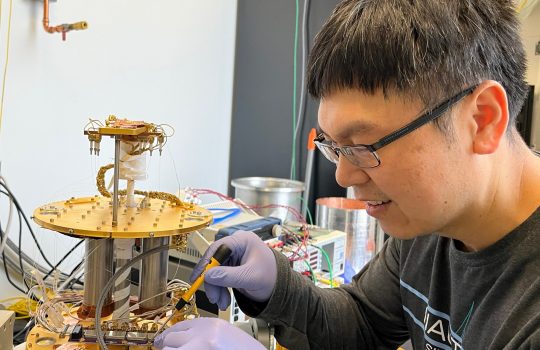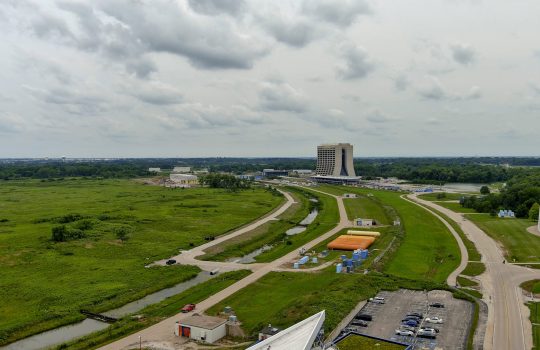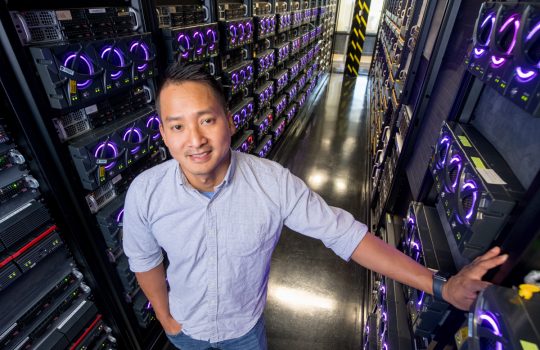Fermilab researchers receive DOE funding to advance emerging technologies for future industries
The funded research areas include state-of-the-art technologies for detecting dark matter; 3D integrated sensors to process tiny, ultrafast signals with high precision; and powerful, compact electron-beam accelerators for industrial use.




